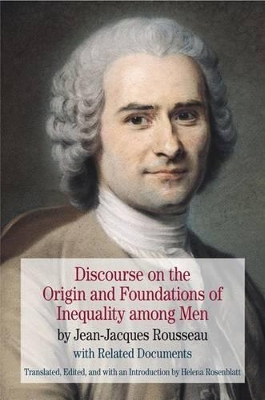The Bedford Series in History and Culture
1 total work
Discourse on the Origin and Foundations of Inequality among Men
by Jean-Jacques Rousseau and Helena Rosenblatt
Published 13 October 2010
A provocative essay that challenged the superiority of civilized society and modern government, Jean-Jacques Rousseau's Discourse on the Origin and Foundations of Inequality made him an outcast among fellow Enlightenment thinkers but stands today as one of the most important political texts in Western history. Helena Rosenblatt's new translation, introduction, and selection of related documents help students comprehend why Rousseau's criticisms of human nature, political hierarchy, and private property were so controversial in his time yet later were hailed as a foundation of democracy. The introduction explores life experiences that shaped Rousseau's philosophy, explains contemporary ideas about political authority and social order, and guides students through Rousseau's thought, including explanations of how his work anticipated theories about evolution and inspired leaders of the French Revolution. Related primary documents - including a selection from Rousseau's Social Contract - situate Rousseau's ideas in contemporary political and social thought. Questions for consideration, a chronology of Rousseau's life and work, and a selected bibliography enrich students' understanding of the man and his times.
